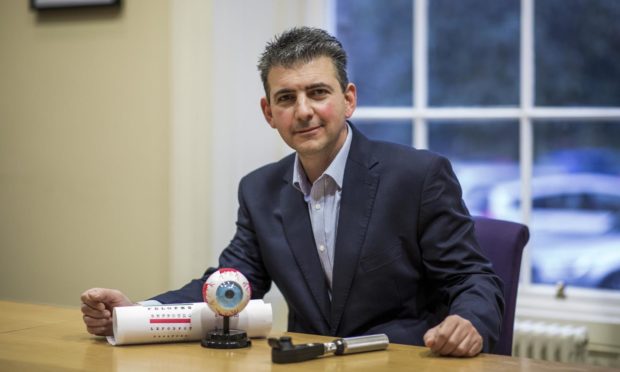Those from poorer backgrounds who have suffered the most during the coronavirus pandemic may not turn out to vote on Thursday.
Researchers from Aberdeen University say the impact of the pandemic in exacerbating pre-existing economic inequalities could affect voter turn-out at the polls on May 6.
Professor Ioannis Theodossiou and Dr Alexandros Zangelidis, from the university’s Centre for European Labour Market Research, say those who have been adversely affected economically by the pandemic may be put off going to vote, and add this could mean the outcome of the election is biased towards the result favoured by those who earn more money.
Professor Theodossiou said: “Evidence suggests that the impact of Covid-19 on lower and middle incomes is that it is pushing people further into poverty, thus exacerbating pre-existing economic inequalities.
“The slowdown of economic activity intensified by the lockdown restriction has not affected in the same way all individuals and households.
“More vulnerable socio-economic groups such as the young, manual workers, those on low incomes and the self-employed are those hit the hardest.
“This is a vicious circle where higher income inequality leads to lower electoral participation, which in turn leads to even further economic disparities.
“With the upcoming Scottish elections, one key question that arises is whether the Covid-19 pandemic-produced inequality will affect voter participation.”
The pair studied data from 28 countries to examine the relationship between inequality and political participation.
Dr Zangelidis says if fewer people from lower incomes do not vote, it could lead to greater inequalities in the future.
He said: “Greater income inequality alienates and discourages people from engaging with common affairs, thus leading to lower political participation.
“Over the last three decades there has been a notable increase in economic inequality accompanied by a decline in political participation in many advanced countries.
“The evidence suggests that although wider participation in parliamentary elections reduces economic inequality, a more disperse distribution of income has an adverse effect on electoral participation.
“Our empirical results imply that there is an interrelationship where economic inequality leads to lower political participation, which subsequently leads to greater inequality.
“Given what we know about the impact of Covid-19 in deepening these existing inequalities in both the UK and Scotland, it suggests voter participation is likely to be affected at future elections.
“What we don’t yet know is the timeframe in which we are likely to see this effect and so on Thursday one key question will be whether Covid-19-related economic inequalities in Scotland discourage people from voting.”
Polls open across Scotland at 7am on Thursday May 6 and will close at 10pm; however, those who are still queuing at 10pm will still be able to cast their ballot.
Anyone who falls ill on polling day or is asked to self-isolate can apply for an emergency proxy vote (where someone you trust votes on your behalf) up to 5pm on the day by contacting the Electoral Commission.
